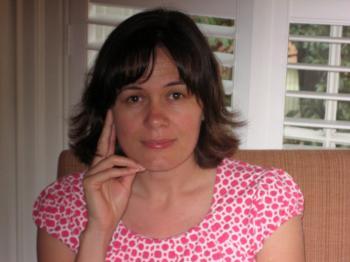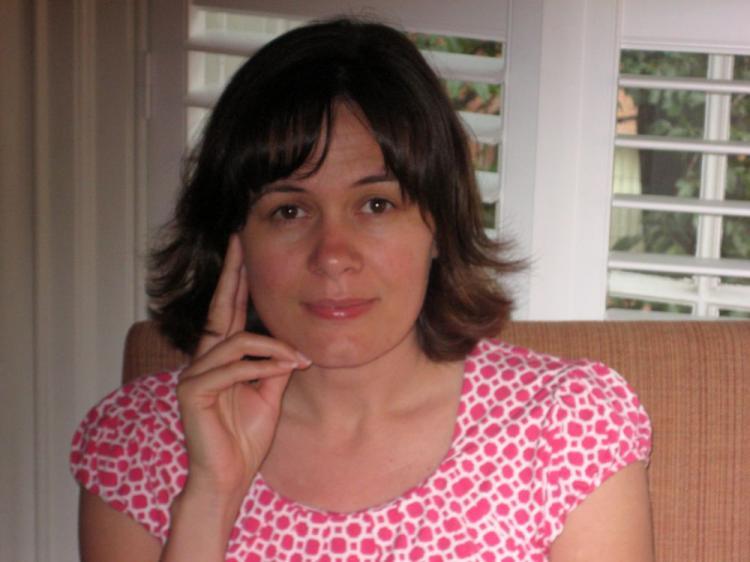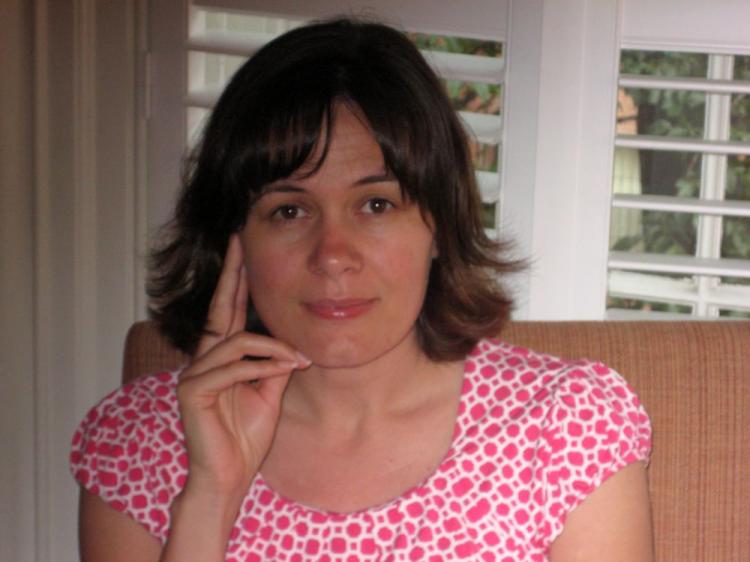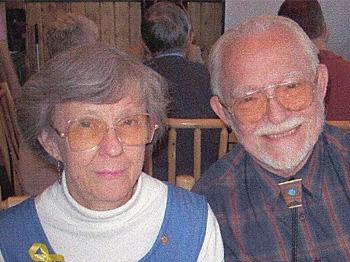Slobodanka Lakic (pronounced Lakeech) says that when her mother, father, and sister were emigrating to America, at the moment of farewell, her mother knelt down and kissed their dirt floor. The whole Lakic village came to say goodbye. Slobodanka remembers the doughy smell of baking from the women’s aprons in her small house.
During the days of the Communist Marshall Tito, instead of traditional Serbian names, like Nicholai, children were given names of qualities. Slobodanka means Freedom; her sister Veselka, Happiness; a girl she liked the most (10 years older) had the name “Love.” Love has been a dark presence in Slobodanka’s life. Love went missing, and her distraught father and the villagers searched for her. They found her body floating in the Danube.
The Lakices, father, mother, and two daughters flew directly to Chicago’s O’Hare, where people with foreign expressions were rushing past. They noticed the ethnic mix of people, lights blazing on gleaming walls. The four of them were left there by themselves to find a footing in Chicago, with no money in their pockets.
The Lakic village in Serbia became Slobodanka’s dream kingdom: a place where they “ate cornmeal from one wooden bowl on a scratched-up hazelwood table,” which was lit by a kerosene lamp hanging from a rusty nail. She says, they had no “libraries, electricity, insulated walls, etiquette, or appetizers, and no desserts, or silver spoons.”
As she sat at night by the fire, listening to stories and songs, her highest dream was to be a writer. Then came the civil war. She recalls in a poem: the survivors were “moving like thawed skeletons,” an old woman on her stoop was waiting “to be woken up from a terrifying dream.”
In Chicago, they were nobodies, one among many in the underclass—
windows with broken shutters, police sirens sending dread through the veins—
the sad ballad of the urban poor who counted pennies from one pay check to the next.
Then, at age nine, she became the translator for her family. She also found employment after school hours; it was a hard life. But twenty years later, she found a way out—she was able to bring together her Serbian oral tradition dream of being a writer and the brave-new-world dream of affluence.
Firstly, at a life-changing workshop for writers at the University of Chicago she was told, “It does not matter that you are an immigrant. You have your own voice.”]
Writing daily over 10 years, Slobodanka completed a book that she has titled “Under the Linden Tree.” Some dozen of her pieces have already appeared in print.
She has earned a comfortable living by becoming a sales person for a company in New England that provides magnetic resonance imaging. She now owns four houses (in Evanston, Boston, Cape Cod, and Novi Sad.) Looking back she says, “In spite of the pain, and the struggle, it has been worthwhile after all.”
During the days of the Communist Marshall Tito, instead of traditional Serbian names, like Nicholai, children were given names of qualities. Slobodanka means Freedom; her sister Veselka, Happiness; a girl she liked the most (10 years older) had the name “Love.” Love has been a dark presence in Slobodanka’s life. Love went missing, and her distraught father and the villagers searched for her. They found her body floating in the Danube.
The Lakices, father, mother, and two daughters flew directly to Chicago’s O’Hare, where people with foreign expressions were rushing past. They noticed the ethnic mix of people, lights blazing on gleaming walls. The four of them were left there by themselves to find a footing in Chicago, with no money in their pockets.
The Lakic village in Serbia became Slobodanka’s dream kingdom: a place where they “ate cornmeal from one wooden bowl on a scratched-up hazelwood table,” which was lit by a kerosene lamp hanging from a rusty nail. She says, they had no “libraries, electricity, insulated walls, etiquette, or appetizers, and no desserts, or silver spoons.”
As she sat at night by the fire, listening to stories and songs, her highest dream was to be a writer. Then came the civil war. She recalls in a poem: the survivors were “moving like thawed skeletons,” an old woman on her stoop was waiting “to be woken up from a terrifying dream.”
In Chicago, they were nobodies, one among many in the underclass—
windows with broken shutters, police sirens sending dread through the veins—
the sad ballad of the urban poor who counted pennies from one pay check to the next.
Then, at age nine, she became the translator for her family. She also found employment after school hours; it was a hard life. But twenty years later, she found a way out—she was able to bring together her Serbian oral tradition dream of being a writer and the brave-new-world dream of affluence.
Firstly, at a life-changing workshop for writers at the University of Chicago she was told, “It does not matter that you are an immigrant. You have your own voice.”]
Writing daily over 10 years, Slobodanka completed a book that she has titled “Under the Linden Tree.” Some dozen of her pieces have already appeared in print.
She has earned a comfortable living by becoming a sales person for a company in New England that provides magnetic resonance imaging. She now owns four houses (in Evanston, Boston, Cape Cod, and Novi Sad.) Looking back she says, “In spite of the pain, and the struggle, it has been worthwhile after all.”







